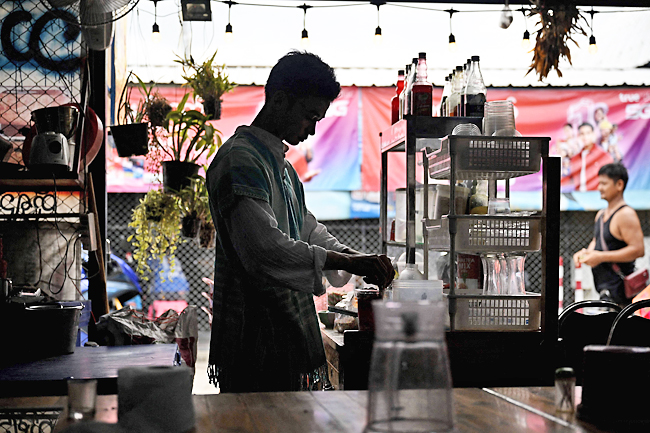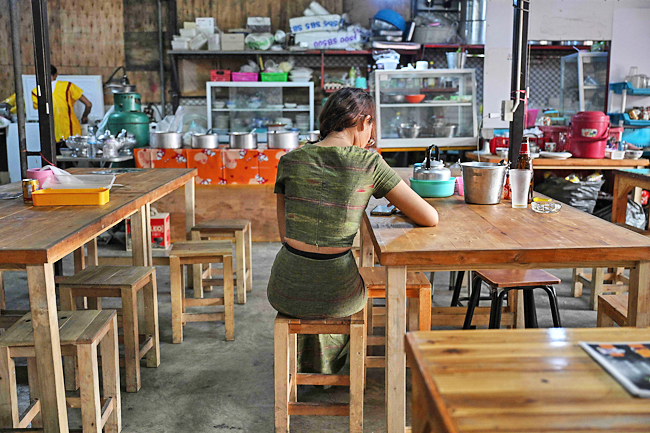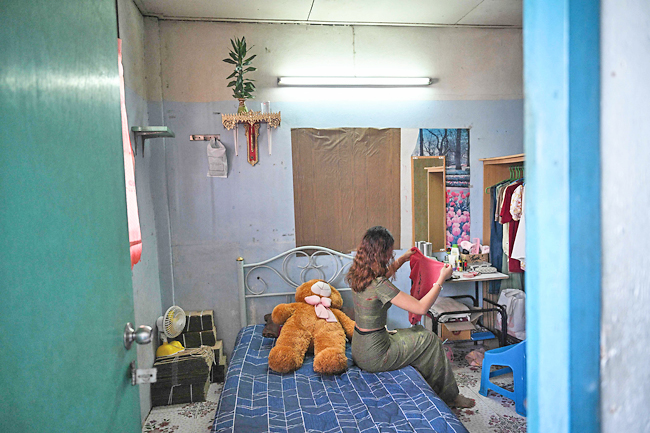THAILAND (AFP) – When Myanmar’s junta announced a conscription law to help crush a popular pro-democracy uprising, Khaing knew there was only one way to escape its clutches, and began planning her escape.
Weeks later the former teacher was hidden in a smuggler’s van heading into Thailand with little more than some clothes, cash and an ID card, not knowing when she would be able to return.
Now scraping a living in Bangkok without papers, Khaing worries constantly about a tap on the shoulder by Thai police and deportation back to the junta.
She is one of tens of thousands of young people rights groups estimate have fled Myanmar since the military introduced conscription in February to shore up its depleted ranks.
The junta is battling widespread armed opposition to its 2021 coup and its soldiers are accused of bloody rampages and using air and artillery strikes to punish civilian communities.
It says it wants to enlist 5,000 people aged between 18 and 35 a month, but details on how they will be chosen, and where and how they will serve are vague.
Media reports of young men being dragged off the streets and into the army – which the military denies – have further added to the panic.




“The conscription law means we have to kill each other,” said Wai Yan, 26, from eastern Karen state, who crossed into Thailand in May.
“We are not fighting a war against foreign enemies,” he said from the Bangkok restaurant where he also works without documents.
“We are fighting each other.”
Shortly after enacting the law, the junta tightened requirements for people crossing Myanmar’s land borders, and temporarily halted issuing foreign work permits for young men. Yangon-based film critic Ngwe Yan Thun, a pseudonym, said he had “no choice” but to leave illegally.
Through friends he contacted a “broker” who said he could be smuggled over the border into Thailand for around THB220.
Ngwe Yan Thun sold off all of his belongings, arranged for friends to look after his dog and bought an air ticket to Tachileik on the Thai border.
At the airport, he had to pay “tea money” to officials at the airport who were suspicious of why he was travelling to the remote provincial town.
He was dropped at a safehouse near the border where around 30 others were waiting to be taken into Thailand.
Then, at short notice, he was crammed into a car with 11 others and they set off.
“I didn’t feel like a human being, I felt like I was black market goods,” Ngwe Yan Thun said from Thailand’s Chiang Mai.
Thailand has long been home to a sizeable Myanmar community, with a bustling market in Bangkok and towns along the border.
The conflict has made it difficult to conduct surveys or verify how many young people had fled abroad to escape conscription, said an official from the International Labour Organization.
But, the organisation said it had received estimates from ground sources that suggested “hundreds of thousands” had fled the law.
`Wai Yan said he was surprised at how many people from Myanmar were in Thailand.
“I even joke with my friends ‘Am I still in Myanmar?’”
After arriving in Bangkok, Khaing was unable to reach her parents as fighting around her home village cut internet and mobile networks.
“I was worried about getting caught by the Thai police. So, I didn’t dare to go outside when I arrived,” she told AFP.
“I cried every day in my first month here.” She found part-time work at a friend’s shop and returns in the evenings to her sparse room where she sells medicine and beauty products on TikTok.
A large teddy bear gifted to her by a friend who knew she was feeling lonely takes up much of the bed. The first batch of conscripts finished their training and would soon be sent to their posts, state media reported last week, as fighting rages in the west and north of the country. Ngwe Yan Thun is grateful he is far away, but is kept up at night wondering what to do next.
“I think about what I should do if I don’t get a job and official documents to stay,” he said. “I can’t go back to Myanmar. I feel overwhelmed by thoughts and worries all the time.”




